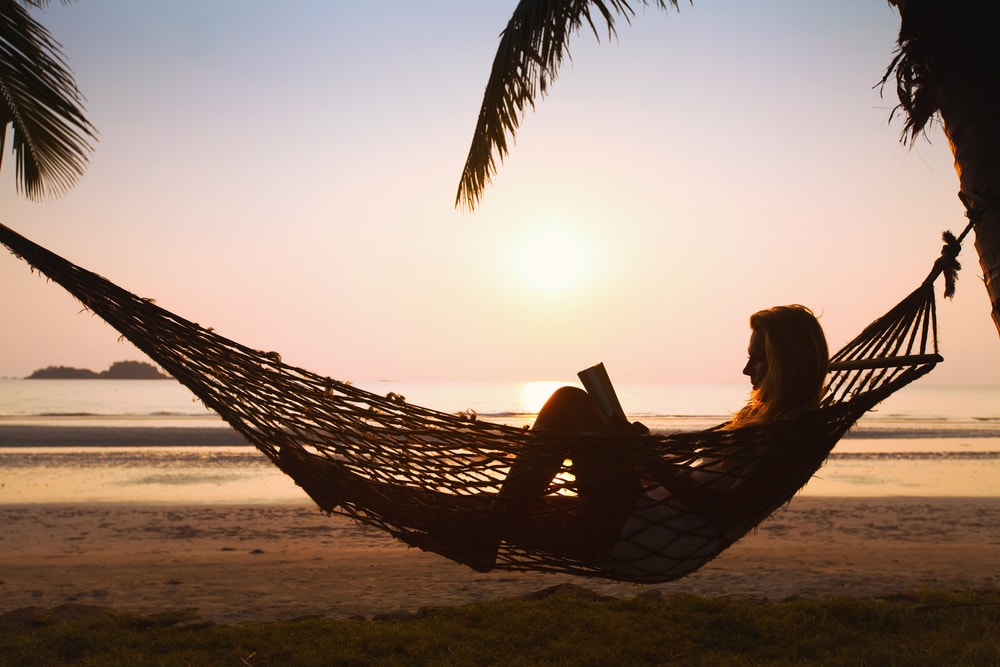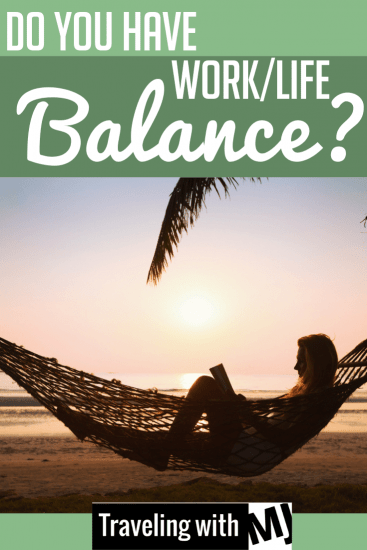
So, you’ve finally taken your vacation days. You’ve rented a condo on a sugar-sand beach in the Caribbean. The family just ran down to the water’s edge to look for shells. Then they’re going to walk up to the beach shack for cold drinks and maybe spend some hardcore time hanging in a hammock slung between a couple of palm trees. Or going SUPing.
And you? You’re holed up in the condo, checking your work email, texting your friend, or banging out a report on your laptop that your boss suddenly realized was imperative…right now. You’re not working on your tan or clearing out your mind or enjoying your vacation with your family.
Being always connected to the internet, consuming digital media, texting friends and colleagues, or checking some app for the latest news or trend has become a modern addiction. And according to the 2019 Vacation Confidence Index released by Allianz Global Assistance, a leading travel insurance and assistance company, nearly two-thirds of working Americans are subject to “email creep,” that insidious leaking of work email into personal, supposedly off-duty time.
A recent study tells us that the average American checks a cell phone 150 times every day. I’m probably not that bad, but since I get most of my news via mobile as well, I’m close. For many of us, the digital signal-to-noise ratio is way off balance.
It’s insidious, and more and more of us know it is. In fact, nearly half of the people Allianz asked for the Vacation Confidence Index admitted they have told or would tell “little white lies” about limited cell reception or poor Wi-Fi as an excuse to avoid checking in with the office while on vacation. Millennials, at 59%, are significantly more likely than their Baby Boomer workmates, at 32%, to tell that fib, with Gen Xers somewhere in the middle. As a Baby Boomer, I’m not entirely sure what to make of those numbers – are we more focused on work or just not prone to lie about our availability.
On the other hand, more than half of respondents, 54%, reported that if given the choice they would rather take more vacations and have to check in with the office more often rather than take fewer vacations without having to check in as much.
But those number also flip by generation. Almost two-thirds of Millennials would rather go away more often while staying connected, but more than half of Baby Boomers would take the second option—less time off but more unplugged. I diverge from my demographic cohort here, I’ll always opt for more vacation even if it means I have to check email daily or set up a conference call in the middle of vacation.

Despite these choices, studies show there are significant benefits to opting for a digital detox while on vacation. For one thing, your kids will be happy with that decision. A study by the Wyndham Hotel Group found that a full 54% of kids think their parents spend too much time on the phone, and 32% of them feel unimportant when their folks are on the phone. It may the same in reverse, too, although I haven’t seen a study on that.
Some companies are beginning to recognize how important leaving the office behind can be and are even paying employees a bonus if they unplug completely while away. Employers find it encourages workers to actually take the vacation time they’ve earned and need, helps them learn to delegate better, and they return to work more refreshed, more creative, and even healthier.
Medical and mental professionals understand what all that screen time is costing us. It causes chronic eye irritation, bad sleep patterns, sloppy posture, lowered creativity, and less ability to concentrate.
When you unplug completely on vacation, the benefits are almost instant. You begin to notice your surroundings in greater detail, taking in the amazing cerulean blue of that Caribbean water, hearing the wind rustle through the palm fronds, feeling deeply the joy of sand under bare feet.
And your relationships with the people around you change too. Instead of plugging in a phone or tablet, you get to plug into each other, your partners, your kids, the people you meet. Or into yourself. It’s a time to recharge your body, mind, and soul, your relationships, and your memory-making brain cells, rather than your glowing screens.
If unplugging completely from your work life back home is not possible when you head out on vacation, look for ways to limit digital time. Set a specific and limited time each day when you allow yourself to check email and make any urgent phone calls or texts. When the allocated time is up and the necessary tasks are done, turn off the phone and put it away. Refuse to log in to social media; don’t be tempted by cat videos or yet another game of Cookie Jam. Real life games, like beach volleyball or putting together a jigsaw puzzle with your kids or friends, are way more fun anyway.
One handy way to limit your online time while you’re away but still have the other benefits of that handy tablet in your purse or pocket is to put it in Airplane Mode and keep it there. This way, you won’t have access to the internet. You won’t get pinged with notifications of phone calls or texts. But you’ll still be able to use your phone camera, read Kindle books, watch movies you’ve downloaded ahead of time, and even use any Google maps you’ve saved for offline use.
Here’s some of what you might expect from this sort of partial digital detox:
- You’ll find yourself noticing details more.
- In an actual paper journal, with a real pen, try recording what you see, hear, taste, touch—the shape of a leaf, the tang of the air in a salt mine, the sound of mariachis in a Mexican town plaza.
- You might notice yourself striking up more conversations with the people around you. Ask someone at the next table what that super-delicious looking thing they ordered is called.
- Ask a stranger on the street for directions. Talk to your waiter, your uber driver, the bartender (they know everything about the place), your AirBnB hostess.
And when your vacation is over and you return home, back to the daily grind of work and texts and emails, you may find you are less compulsive about picking up the phone, that you’re able to shut off the laptop and leave it off when you’re not at work. You may discover you are more creative, more present in the moment, and that time spent with family, a book or a hobby is far more rewarding than checking your Facebook feed or answering an email that can wait until you’re at your desk in the morning.
Next time you go on vacation decide to get the most out of your time off. Put the phone away – that beach hammock isn’t going to swing itself.
Disclosure: This post is sponsored by Allianz Global Assistance (AGA Service Company) and I have received financial compensation. However, all thoughts and opinions are my own.

